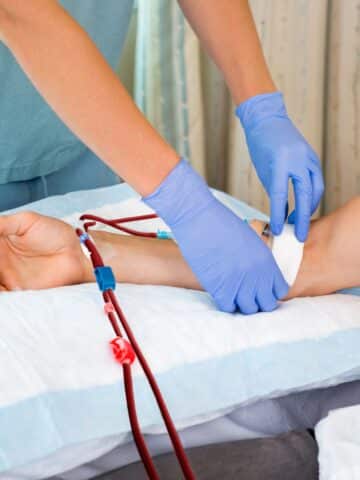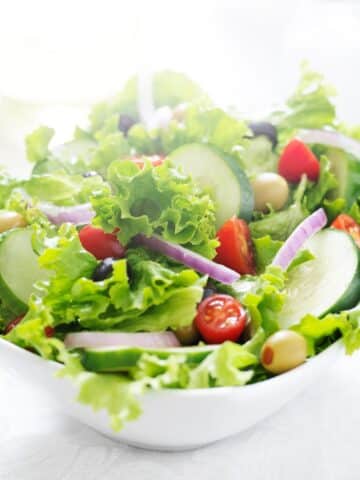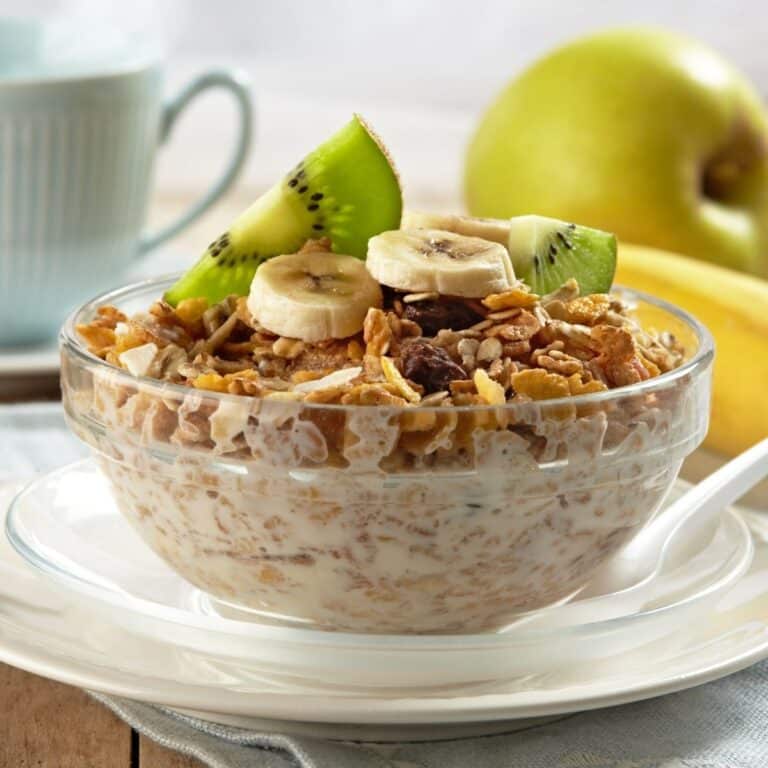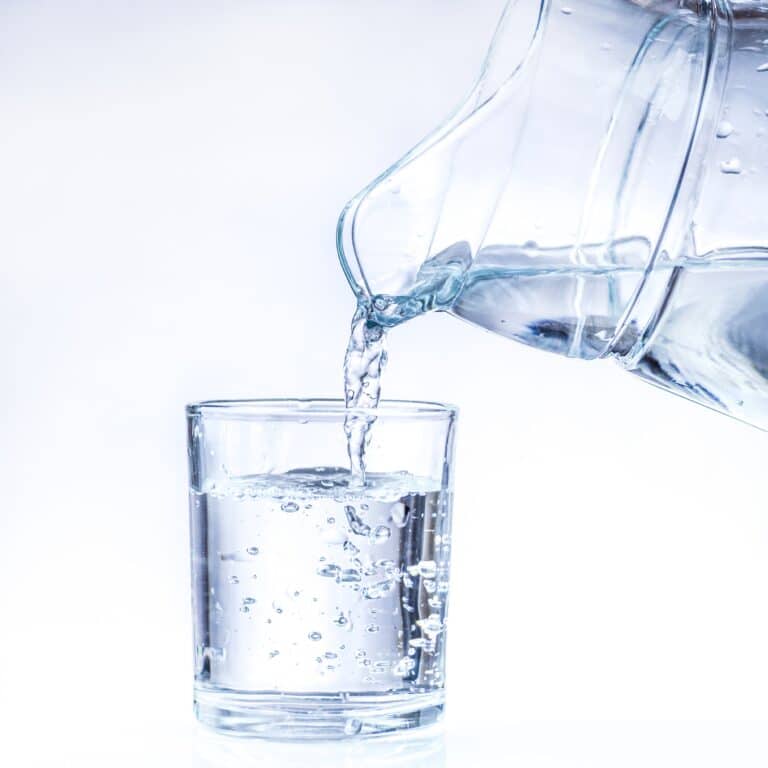What Is A Kidney Failure Diet
Kidneys in the human body perform several functions, the most important being the removal of wastes and excess water from the blood.
Other functions include balancing of chemicals needed for the body, releasing hormones, helping in keeping control of blood pressure and production of red blood cells and production of vitamin D for bone tissue growth.
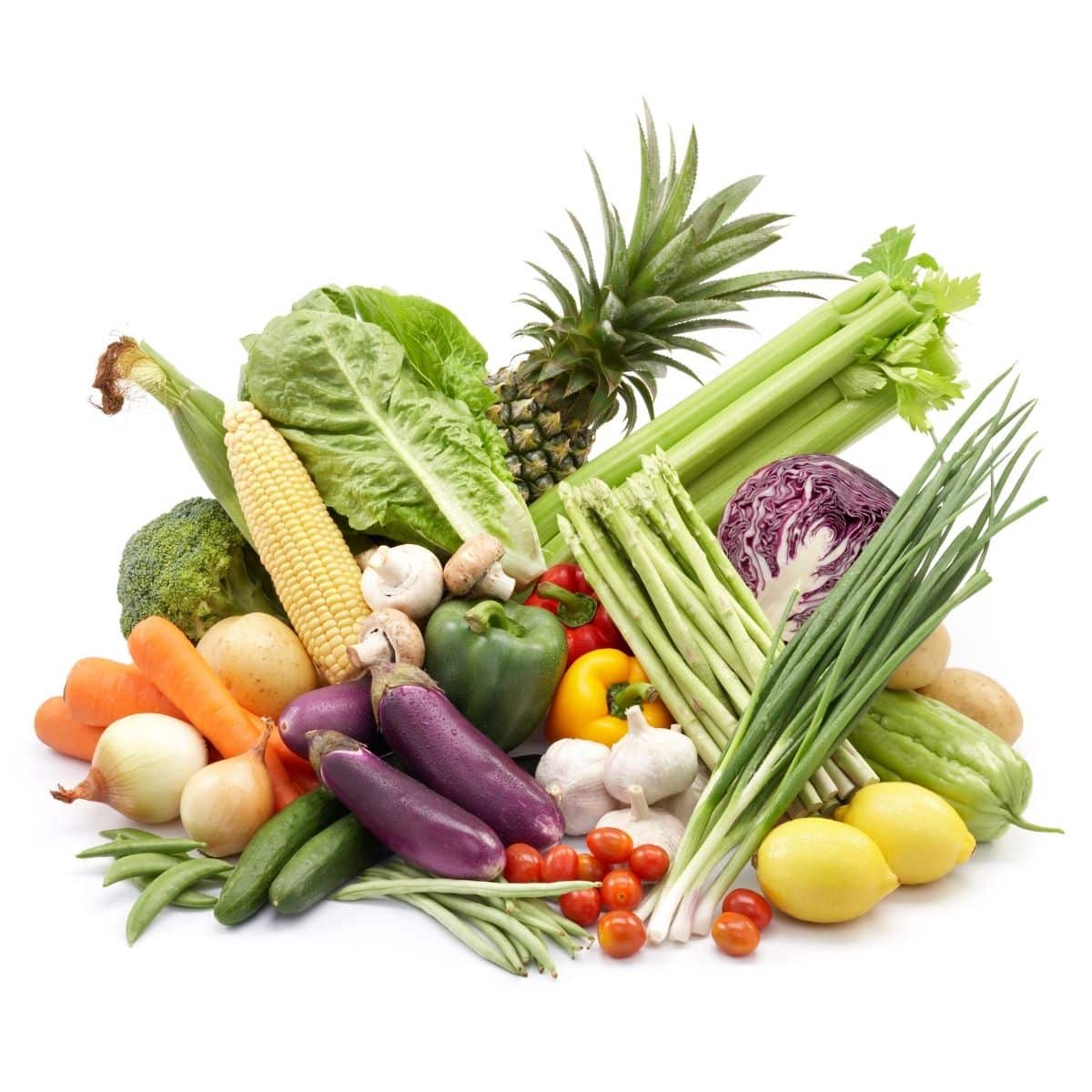
When one of your kidneys are damaged or start to ‘fail’ due to various illnesses or consequent to trauma or injuries, the second one can take over the functions and work well for a long time.
But in several cases both kidneys may become partially or totally dysfunctional, especially over time in persons who have diabetes or high blood pressure that is not well controlled.
In such cases, use of dialysis is resorted to once the kidneys are not able to do their needed functions. There is also an easy diet plan predialysis before you get to this point.
Leading up to dialysis, a person will be advised to follow a kidney failure diet to ensure they are helping their kidneys to not work overly hard but get the nutrients they need.
Jump to:
- When Should A Person Start Following A Kidney Failure Diet?
- Symptoms Of Kidney Failure
- Causes Of Kidney Failure
- Understanding A Kidney Failure Diet
- Importance Of Protein Management
- Limiting Sodium Intake
- Lowering Potassium Intake
- Controlling Phosphorus Intake
- Limiting Fluid Intake
- Planning Healthy Meals
- FAQs for a Kidney Failure Diet
- A Kidney Failure Diet Can Control Your Kidney Disease
When Should A Person Start Following A Kidney Failure Diet?
Planning a patient's meals using a kidney failure diet plan helps to limit the frequency and duration for which the patient has to undergo dialysis, and is preventive in nature.
Here, the accumulation of body waste products in the bloodstream is controlled and delayed by following a suitable kidney failure diet to keep it under control.
Such special diets, managed by well trained and registered dietitians, are designed to ensure that proper balance of electrolytes, trace minerals, and fluid levels are kept to optimum levels depending on the individual needs of the patient for their kidney failure diet.
Based on the advice of your physician, the dietitian would determine the appropriate kidney-friendly eating plan for your needs.
For More Recipes and Ideas --->> Get Your Free Meals and Recipes That Are Perfect for Pre-Dialysis Diets, Pre-Dialysis with Diabetes, or Dialysis Diets.
Symptoms Of Kidney Failure
We all know that kidney failure can be a life-threatening condition, but do you know how to recognize its warning signs? One of the most frequently reported symptoms is feeling constantly fatigued - even after getting adequate sleep.
It’s important for people with kidney failure to manage this symptom by avoiding overexertion and listening to their bodies when they need rest.
Another sign is frequent urination or difficulty sleeping due to needing multiple bathroom visits during the night. Dehydration can also occur due to increased urination so make sure you're drinking plenty of fluids throughout the day!
Managing fatigue, avoiding dehydration and seeking support are just some of the ways to manage symptoms of kidney failure. Recognizing these common indicators is key when it comes to managing your health in order to avoid potentially serious complications.
It's also important to be aware of any triggers which may worsen your symptoms such as stress or certain foods. If you think something might be affecting your health negatively, talk to your doctor about what steps you can take and consider joining a support group if available in your area.
Taking care of yourself through diet, exercise and relaxation techniques should help keep your kidneys healthy and functioning properly!
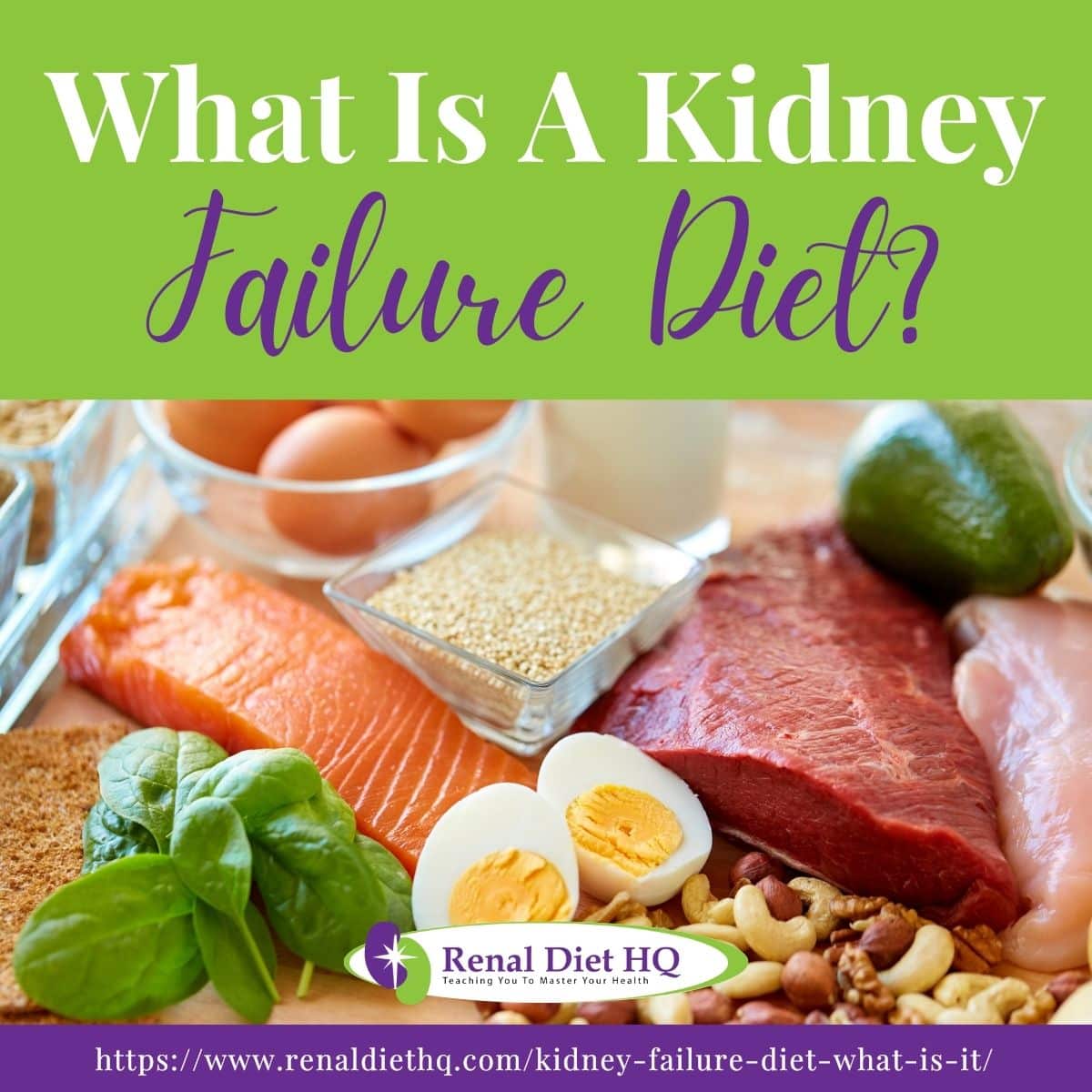
Causes Of Kidney Failure
When it comes to kidney failure, it's important to be aware of its causes. Usually, kidney failure is caused by an underlying medical condition such as diabetes or high blood pressure.
Additionally, lifestyle choices can also play a role in the development of this illness - for example, not exercising enough or having poor hydration levels.
We can prevent and manage this disease through simple changes like eating a balanced diet and engaging in regular exercise which has many benefits.
Furthermore, alternative treatments such as herbal remedies may help to improve your health if you are suffering from chronic conditions that cause kidney failure.
Remember to keep up with your hydration levels throughout the day so that your kidneys have everything they need! By being mindful of these guidelines and making small adjustments in our lifestyles, we can avoid further complications down the line.
Understanding A Kidney Failure Diet
How does kidney failure affect the body? The benefits of a kidney failure diet can be immense, as it helps reduce the risk of further complications. It's important to be aware of what types of foods to avoid, as certain foods can be detrimental to kidney health, yet some are the best foods for kidney repair and should be eaten.
Major aims of such kidney failure diets include limiting fluids to just the required levels, consumption of low protein foods, restrictions on salt, potassium, phosphorus and other electrolytes and at the same time providing enough calories for healthy living.
Making sure to get the right balance of nutrients, including protein, healthy fats, and complex carbohydrates, will help ensure that the individual's health is being taken care of.
Benefits Of Kidney Failure Diet
Are you wondering why a kidney failure diet is important? A properly managed dietary plan can help manage symptoms of chronic conditions, such as kidney failure.
- Managing daily nutrition is key when living with late-stage chronic kidney disease or any other health condition related to kidneys. Eating more fresh fruits and vegetables helps provide necessary vitamins and minerals without excess sodium or phosphorus.
- Additionally, increasing fiber intake allows for improved elimination of metabolic wastes from the body which is especially beneficial for those suffering from kidney failure because their bodies cannot adequately filter them on their own.
- To reap the benefits of a kidney failure diet, it’s essential to monitor fluid intake, manage vitamin levels, avoid processed foods and limit caffeine consumption.
By following these guidelines, your body will be better able to process what it needs while flushing out waste products that are harmful for people with kidney disease. There are benefits of a renal diet.
Foods rich in complex carbohydrates should also be consumed regularly as they can slow down digestion and provide sustained energy throughout the day rather than spiking blood sugar levels like simple sugars do.
While limiting unhealthy fats is helpful overall, fatty acids can still be obtained through natural sources such as fish oil supplements or cold-pressed olive oil - both excellent choices for keeping cholesterol under control while providing support for healthy organ function.
Taking steps to adjust one's diet accordingly provides many advantages including maintaining good overall health!
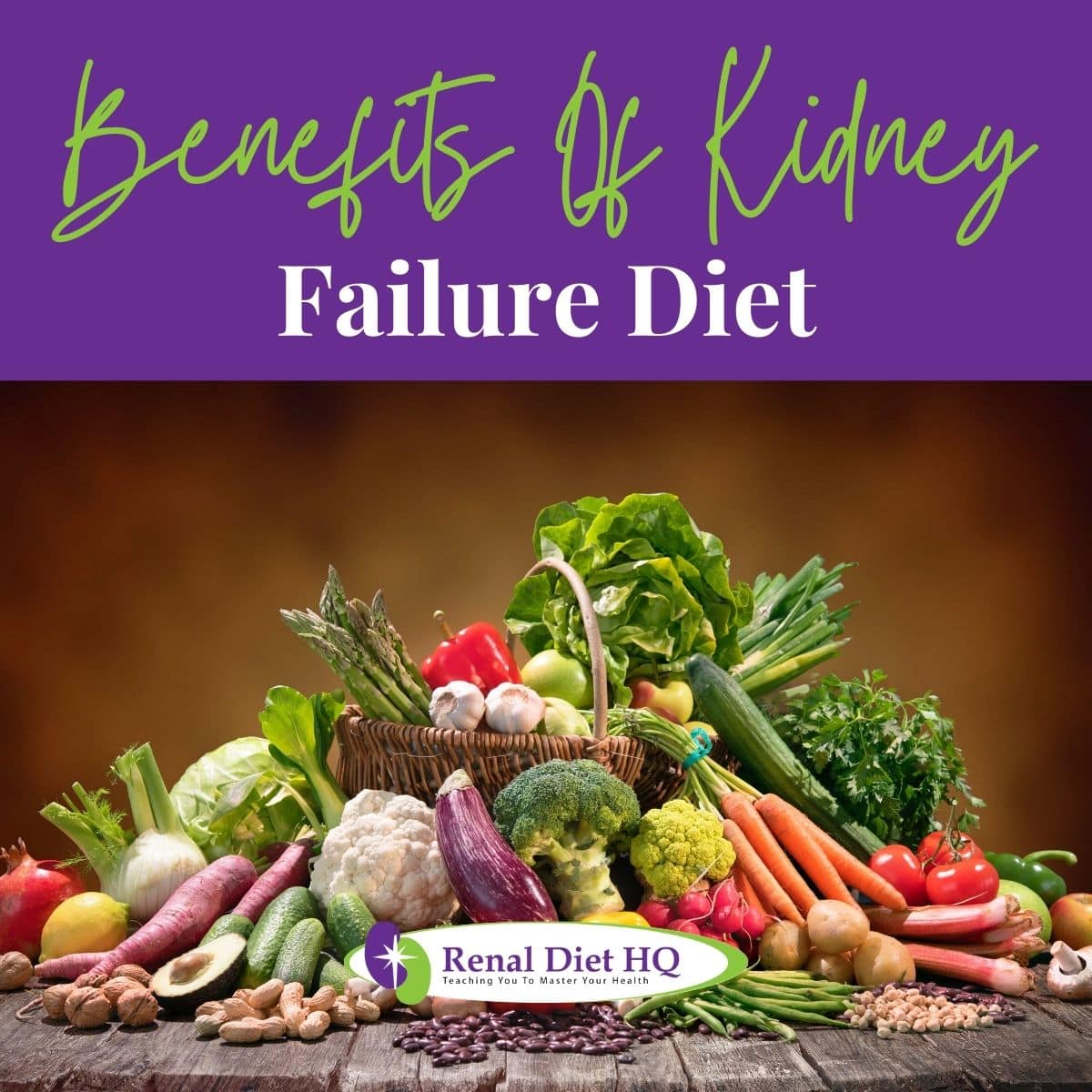
Types Of Foods To Avoid
It's also important to understand which types of foods should be avoided when managing a kidney failure diet. Avoiding alcohol is recommended since the kidneys are not able to process it effectively and too much can lead to dehydration.
Additionally, decreasing processed food consumption is beneficial because these items generally contain large amounts of sodium that can damage the kidneys. Sugar can also damage your kidneys if you are diabetic, and it’s therefore essential to maintain good blood sugar control..
By following these guidelines, you'll find yourself better equipped to make healthier choices throughout your day! Here is a list of foods to avoid with kidney disease.
Importance Of Protein Management
Why low protein diet in kidney disease? The benefits of protein management are huge, especially for those with kidney failure. Protein is vital for maintaining healthy body functions, but restricting it is beneficial in reducing the workload of your kidneys.
There are a few strategies for protein management, such as eating more plant-based proteins and limiting high-protein foods. By managing your protein intake, you can help protect your health and reduce the risk of kidney failure complications.
Benefits Of Protein Management
Protein management is an important part of a healthy diet for those suffering from kidney failure. The kidneys play a crucial role in filtering waste products from the blood, including the byproducts of protein metabolism.
When the kidneys are damaged, they may not be able to filter these waste products effectively, leading to a buildup of toxins in the body.
High levels of waste products in the blood can increase the risk of complications such as cardiovascular disease and bone loss. Protein management can help to reduce the buildup of these waste products, which may lower the risk of these complications.
Taking control of protein intake also reduces the workload on the kidneys, which may slow the progression of chronic kidney disease.
Strategies For Protein Management
It's no secret that protein management is important for those suffering from kidney failure, but it can be difficult to know where to start. There are a few different strategies one can use in order to get the most out of their diet and provide their body with what it needs.
Reducing animal proteins and switching to a vegetarian diet is an easy way to begin; eating low fat foods and limiting alcohol will help keep cholesterol levels in check as well Staying hydrated by drinking plenty of water each day will also flush out any toxins that have built up and allow your kidneys to function properly.
All these tactics combined can lead you on the path towards better health while living with kidney failure - so don't be afraid to give them a try!
Limiting Sodium Intake
Sodium is found in a lot of different foods and drinks. It's clear that monitoring and limiting our sodium intake is important for overall health. But how much salt should we be eating? The recommended daily amount of sodium varies depending on a person's diet, age, and any medical conditions they may have.
Generally speaking, healthy people should limit their sodium intake to 2.300 milligrams per day while kidney patients should aim to further limit their sodium intake to 1.500 milligrams of sodium per day.
How does a low sodium renal diet work? There are a few ways to reduce our sodium intake, such as avoiding processed foods, reading food labels, and using herbs and spices as salt substitutes. We can also opt for low-sodium alternatives when eating out requesting dressings and sauces on the side.
This can also help you control your intake of sodium. Reducing our sodium intake is an important part of maintaining a healthy diet and avoiding kidney failure.
Lowering Potassium Intake
Looking for a low potassium diet menu? Reducing dietary levels of potassium is a key component of managing kidney failure. To do this, first track your potassium sources by keeping an eye on processed foods and animal proteins.
These are some of the more common high-potassium items, but it's important to pay attention to other sources as well.
You might also want to try switching out food items with extra potassium for their lower amounts of potassium counterparts by checking the nutrition labels or you could also look into creating potassium free recipes that still offer plenty of flavor.
Lastly, if you're unsure about what kind of meals would be best suited for managing your condition, consider looking up some potassium friendly recipe ideas online and speaking with a doctor or nutritionist who can help guide you in the right direction.
With all these tips in mind, you'll soon be able to reduce your everyday potassium intake while maintaining a flavorful diet and healthy kidneys!
Controlling Phosphorus Intake
First, let's talk about foods to avoid when controlling phosphorus intake, like processed meats and dairy products.
Next, we should discuss portion control and reading labels. We will also discuss ways to swap out certain high phosphorus ingredients for lower phosphorus options.
Foods To Avoid
When it comes to tracking your kidney health, foods that are high in phosphorus can be extremely detrimental. Make sure you pay attention to these foods to avoid with kidney disease.
Processed meats like bacon, sausage or hot dogs, spreadable cheese, and pudding all contain high blood levels of phosphorus could spell disaster for one's kidneys.
It’s essential for those with a history of or currently experiencing kidney failure to avoid these types of food altogether.
It’s important to remember that biscuits, pancakes, muffins and cakes are all packed full of phosphorus and it's almost all due to baking powder, so these products should also be avoided at all costs.e,.
While managing one's diet is key when dealing with kidney disease, there are still plenty of delicious options available!
Fresh fruits and vegetables provide excellent sources of vitamins and minerals without containing excess amounts of phosphorus - they're nature's way of helping us maintain our healthy lifestyles while being mindful about what we eat!
Limiting Fluid Intake
People with kidney failure usually don’t excrete enough water. Therefore, it’s recommended that these patients should greatly restrict their water intake.
When adjusting portions, try not reducing your servings drastically but rather cutting out some small sips here and there throughout the day.
This will allow you to still enjoy foods with higher liquid content while keeping tabs on your total consumption.
Additionally, focus on reducing sugar-sweetened beverages; these are often high in calories yet don’t provide any adequate nutrition.
Finally, monitoring what goes into our bodies is essential for staying healthy. Keep track of how much fluids you take in each day so you can stay within the recommended limits set by doctors or nutritionists.
With proper awareness and management, you'll find yourself feeling more energized than ever before! Keep in mind that there are fluids to hydrate with kidney disease.
Planning Healthy Meals
When it comes to healthy eating plans, it's important to choose nutrient-rich foods. Meal prepping can help make it easier to stay on track with your diet, so it's worth taking the time to plan ahead.
Eating out options can be tricky when it comes to a kidney failure diet, but there are still ways to make healthy choices even when you don't have access to a kitchen. You can even read this book on eating out with kidney disease.
Incorporating low-potassium fruits and vegetables into your meals is a great way to get the nutrients your body needs.
Look for recipes that are low in sodium and high in fiber to help promote kidney health. Taking the time to plan out meals in advance can make all the difference in sticking to your diet.
Meal Prep Strategies
To help manage your health while following a kidney failure diet, meal prep strategies are the key. Discovering meal prep for kidney disease patient will change your life in the best way!
Before starting meal prep, it's important to plan out your meals for the week. This can help you to ensure that you are getting a variety of nutrients and that your meals are balanced and kidney-friendly.
When planning your meals, focus on foods that are low in sodium, potassium, and phosphorus. This may include lean high-quality protein sources, such as chicken, fish, and turkey, as well as fruits and vegetables that are low in potassium, such as apples, berries, and green beans.
Cooking in bulk can save time and make it easier to stick to your meal plan. Consider cooking large batches of kidney-friendly foods, such as brown rice, quinoa, or roasted vegetables, and portioning them out for the week.
By following these meal prep strategies, people with kidney disease can help to manage their diet and ensure that they are eating healthy, kidney-friendly meals.
Eating Out Options
With all the meal planning and prepping involved in following a kidney failure diet, eating out can feel like an impossible task. Luckily, there are several healthy options available to make sure you still enjoy dining out without compromising your health goals.
Before going out to eat, research the restaurant online to see if they have a menu available. Look for dishes that are low in sodium, potassium, and phosphorus, and avoid dishes that are fried or heavily seasoned.
Simple dishes, such as grilled chicken or fish with steamed vegetables, are often a good choice for patients with kidney failure. Avoid dishes that are heavily processed or contain a lot of added ingredients.
Don't be afraid to ask the server if modifications can be made to a dish to make it more kidney-friendly. For example, ask for kidney friendly sauces or kidney friendly salad dressing on the side, or request that your meal be cooked without added salt.
Restaurant portions are often larger than what is recommended for patients with kidney failure. Consider sharing a dish with a friend or taking half of your meal home for later.
Lastly, remember to always ask questions if unsure about ingredients - it's important to stay informed when it comes to nutrition! With these tips in mind, you'll soon find yourself enjoying delicious meals out with friends and family again.
FAQs for a Kidney Failure Diet
Reducing potassium intake can be effective in managing kidney failure.
The most effective way to reduce potassium intake is to avoid or limit foods that are high in potassium. Some examples of high-potassium foods include bananas, oranges, potatoes, avocados, and spinach.
It is also important to read food labels carefully, as many processed foods contain added potassium.
Additionally, cooking methods can affect the potassium content of foods, so boiling or leaching vegetables in water before eating them can help reduce their potassium content on your individual needs.
If you have kidney failure, it is important to make sure your diet supports a healthy lifestyle.
Avoid processed foods (processed foods and CKD) and instead opt for fresh ingredients that are rich in vitamins and minerals. It's also essential to control your intakes of sodium, potassium, and phosphorus - this can mean checking nutrition labels or limiting the amount of table salt added during cooking.
Increasing fiber intake through fruits, vegetables and whole grains can help with digestion; while watching sugar intake and limiting alcohol consumption will also limit the damage done to your kidneys.
Following these guidelines will ensure you are taking steps towards supporting your body even when living with kidney failure.
If you have kidney failure, it is important to talk to your healthcare provider or a registered dietitian before taking any supplements.
Some supplements can be harmful to the kidneys or interact with medications that you may be taking.
That being said, there are some supplements that may be beneficial for people with kidney failure, including:
1. Iron: People with kidney failure may be at risk for anemia (kidney disease and anemia), so taking an iron supplement may be helpful.
2. Vitamin D: Kidney failure can lead to vitamin D deficiency, so taking a vitamin D supplement may be recommended.
3. Omega-3 fatty acids: Omega-3 fatty acids may help reduce inflammation and improve heart health in people with kidney failure.
4. Probiotics: Probiotics may help improve gut health and reduce inflammation in people with kidney problems.
However, it is important to talk to your healthcare provider before taking any supplements, as they can help you determine which supplements are safe and appropriate for you based on your individual needs and medical history.
They can also help you determine the appropriate dosage and monitor for any potential side effects or interactions with other medications.
Living with kidney failure can be a challenging experience, but making simple lifestyle changes can go a long way in helping to improve your kidney function.
Minimizing salt intake by using salt alternatives, controlling sugars and managing your daily intake of protein are all important steps for bettering your overall health.
Chronic stress can increase blood pressure and damage the kidneys, so it is also important to find ways to manage stress, such as through meditation, yoga, or other relaxation techniques.
Regular exercise can help improve your impaired kidney function by reducing blood pressure and improving circulation. However, it is important to talk to your healthcare provider before starting a new exercise program.
A Kidney Failure Diet Can Control Your Kidney Disease
Kidney failure can be a difficult and challenging situation to deal with, but eating the right foods and making small lifestyle changes can make all the difference. It is important to remember that no two people are exactly alike, so what works for one may not work for another.
Even though it may seem like a daunting task at first, by following a kidney-friendly diet you have the power to flip the script on your health.
After all, knowledge is power! So don't let kidney failure slow you down; there's still time to turn things around if you put in the effort.



